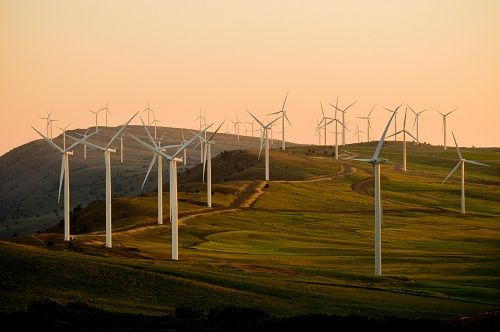Last year, global investment in the green energy transformation rose to a record level. Never before has so much been spent on the production of renewable energies, electric cars, hydrogen cycles and other clean technologies. "As pleasing as the figures are, it has to be said: It's still not enough, the world needs to step up its game," comments Markus W. Voigt, CEO of the aream Group.
Global spending on clean technologies and the transition to a sustainable energy supply has risen to 1.8 trillion dollars. This was calculated by the London-based information service BloombergNEF. This corresponds to an increase of 17 percent compared to the previous year. If investments in the development of supply chains for clean energy and 900 billion dollars in financing are added to this, the total sum for 2023 rises to around 2.8 trillion dollars.
"The record chase will continue," says Voigt, "but it must accelerate in order to reach the goal of net zero emissions by the middle of the century." To achieve this goal, BloombergNEF estimates annual expenditure of over 4.8 trillion dollars, which is significantly more than previously. China remained the global leader last year with around 680 billion dollars. It was followed by the EU with 340 billion dollars and the USA with 300 billion dollars.
The production of photovoltaic systems in Germany was slowed down by the weather at the beginning of the new year. Average hours of sunshine combined with snow led to below-average production and a target achievement of 93%. Things went somewhat better in Spain, where very good production was recorded with only a few hours of sunshine. The target achievement was 94 percent. In Italy, on the other hand, the sun shone quite frequently. "However, we were unable to make good use of this due to snow and technical failures," explains Voigt. The target achievement remains at 92 percent. The German wind turbines were able to achieve 97 percent of their target value. The weather played along and the wind conditions were good. However, curtailments led to losses in wind yield, which varied greatly from region to region.
PRESSEKONTAKT:
Leandra Kiebach
T: +49 (0)211 30 20 60 4-2
E: lk@aream.de
